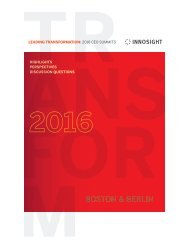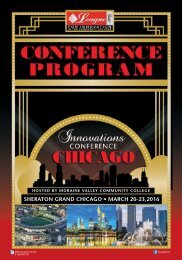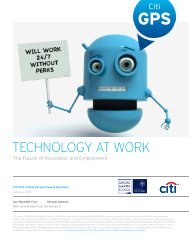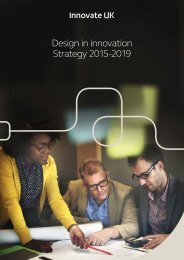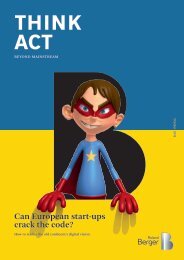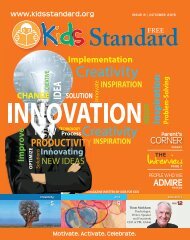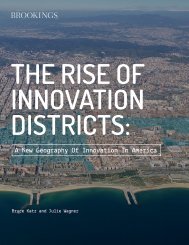DOHA NOV 3-5 2015
wise_-_program_book_2015_0
wise_-_program_book_2015_0
You also want an ePaper? Increase the reach of your titles
YUMPU automatically turns print PDFs into web optimized ePapers that Google loves.
LEARNING AND WELL-BEING:<br />
AN AGENDA FOR CHANGE<br />
Lead authors:<br />
- Prof. Marwan Awartani, President, Palestine Technical University Kadoorie, Palestine<br />
- Ms Janet Looney, Director, European Institute of Education and Social Policy, USA<br />
K-12 REFORM IN THE GULF<br />
CORPORATION COUNCIL (GCC)<br />
COUNTRIES: CHALLENGES AND<br />
POLICY RECOMMENDATIONS<br />
Research Organizations:<br />
Palestine Technical University Kadoorie and European Institute of Education and Social<br />
Policy<br />
The understanding of well-being as an important goal for individuals and for<br />
communities has gained real traction in recent years. Yet the idea of “learning for wellbeing”<br />
is still only at the margins in schools the world over. Curricula for twenty-first<br />
century skills continues to focus primarily on the academic subjects and on transversal<br />
skills such as critical thinking and problem solving while programs that support wellbeing<br />
tend to be extra-curricular.<br />
This report examines how to define, measure and foster learning for well-being in<br />
schools and through policies. It analyses six case studies of positive practices from<br />
different regions and identifies some of the common principles that can serve as a<br />
framework for innovators working in other contexts. It also develops recommendations<br />
to actively promote well-being at the level of international frameworks, national<br />
education policies and schools.<br />
Lead author:<br />
Dr. Asmaa Al-Fadala, Director of Research, WISE, Qatar<br />
Research organization:<br />
The World Innovation Summit for Education (WISE)<br />
The Gulf Corporation Council (GCG) countries have recently experienced major<br />
education reforms, resulting in great achievements in learning outcomes.<br />
However, some limitations can be identified as existing gaps in access and quality<br />
of education persist.<br />
The report identifies and compares the development of the education reform<br />
initiatives put in place in selected countries of the GCG countries, with particular<br />
focus on Qatar, the United Arab Emirates and the Kingdom of Saudi Arabia.<br />
It examines the lessons learned from these reform experiences, focusing on<br />
the key levers for supporting education outcomes. The report considers how<br />
school leaders can create or transform conditions in existing settings to improve<br />
learning for all. Finally, the report explores policy implications and outlines<br />
recommendations for education reform in the future.<br />
WISE RESEARCH<br />
• 78 • • 79 •



